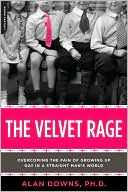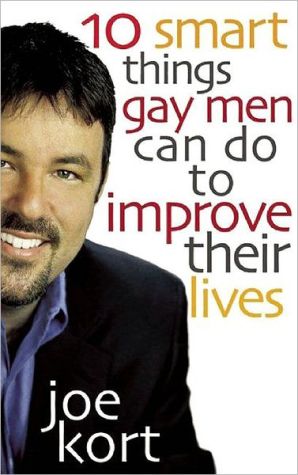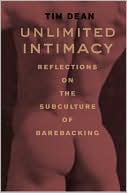Gay Macho: The Life and Death of the Homosexual Clone
Before gay liberation, gay men were usually perceived as failed men - "inverts," men trapped in women's bodies. The 1970s saw a radical shift in gay male culture, as a male homosexuality emerged that embraced a more traditional masculine ethos. The gay "clone," a muscle-bound, sexually free, hard-living Marlboro man, appeared in the gay enclaves of major cities, changing forever the face of gay male culture. Gay Macho presents the ethnography of this homosexual clone. Martin P. Levine, a...
Search in google:
Before gay liberation, gay men were usually perceived as failed men--"inverts," men trapped in women's bodies. The 1970s saw a radical shift in gay male culture, as a male homosexuality emerged that embraced a more traditional masculine ethos. The gay clone, a muscle-bound, sexually free, hard-living Marlboro man, appeared in the gay enclaves of major cities, changing forever the face of gay male culture. Gay Macho presents the ethnography of this homosexual clone. Martin P. Levine, a pioneer of the sociological study of homosexuality, was among the first social scientists to map the emergence of a gay community and this new style of gay masculinity. Levine was a participant in as well as an observer of gay culture in the 1970s, and this perspective allowed him to capture the true flavor of what it was like to be a gay man before AIDS. Levine's clone was a gender conformist, whose masculinity was demonstrated in patterns of social interaction and especially in his sexuality. According to Levine, his life centered around the "four D's: disco, drugs, dish, and dick." Later chapters, based on Levine's pathbreaking empirical research, explore some of the epidemiological and social consequences of the AIDS epidemic on this particular substratum of the gay community. Although Levine explicitly refuses to pathologize gay men afflicted with HIV, his work develops a scathing, feminist-inspired critique of masculinity, whether practiced by gay or straight men. Booknews A sociological study of the emergence of the gay male culture from the explosion of gay liberation in the early 1970s through the beginning of the AIDS crisis of the mid-1980s. The first half of the book is the dissertation of Levine, who based it primarily on field work conducted in Greenwich Village's growing gay community in the late 1970s. He looks at the sociology of gay masculinity, hypermasculine sexuality and gender confirmation, and the birth of the "gay clone." The second half of the work is made up of essays which chronicle the beginning of the AIDS epidemic, examine the myth of sexual compulsivity, and look at the implications of constructionist theory for social research on the AIDS epidemic. Annotation c. by Book News, Inc., Portland, Or.
Editor's PrefaceAcknowledgmentsPt. IThe Birth of the Gay Clone1Introduction: "So Many Men, So Little Time": Toward a Sociology of the Gay Male Clone31"It's Raining Men": The Sociology of Gay Masculinity102"Y.M.C.A.": The Social Organization of Gay Male Life303"(I Wanna Be a) Macho Man": The Masculinization of Clone Social Life554"(You Make Me Feel) Mighty Real": Hypermasculine Sexuality and Gender Confirmation775"Midnight Love Affair": Gay Masculinity and Emotional Intimacy100References to Part One111Pt. IIThe Death of the Gay Clone1256Bad Blood: The Health Commissioner, the Tuskegee Experiment, and AIDS Policy [1983]1277Fearing Fear Itself [1984]1388Men and AIDS1439The Myth of Sexual Compulsivity15810The Motives of Gay Men for Taking or Not Taking the HIV Antibody Test17811Unprotected Sex: Understanding Gay Men's Participation20512The Implications of Constructionist Theory for Social Research on the AIDS Epidemic among Gay Men [1992]232Epilogue: Martin P. Levine, 1950-1993247Index251About the Editor260
\ BooknewsA sociological study of the emergence of the gay male culture from the explosion of gay liberation in the early 1970s through the beginning of the AIDS crisis of the mid-1980s. The first half of the book is the dissertation of Levine, who based it primarily on field work conducted in Greenwich Village's growing gay community in the late 1970s. He looks at the sociology of gay masculinity, hypermasculine sexuality and gender confirmation, and the birth of the "gay clone." The second half of the work is made up of essays which chronicle the beginning of the AIDS epidemic, examine the myth of sexual compulsivity, and look at the implications of constructionist theory for social research on the AIDS epidemic. Annotation c. by Book News, Inc., Portland, Or.\ \ \ \ \ From the Publisher"This book seems destined to become a eulogy for the important contributions that Martin Levine made to the sociological study of sexuality, gender, and AIDS."\ -Men and Masculinities,\ \ \








